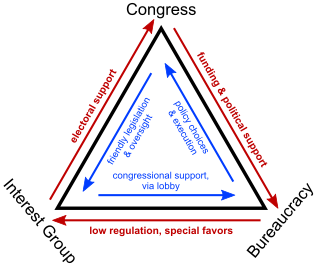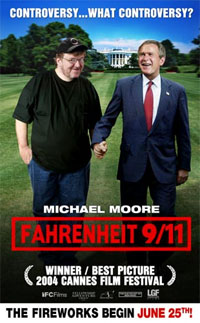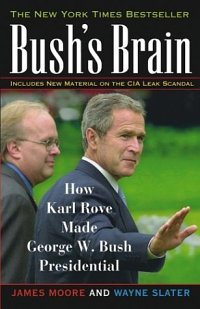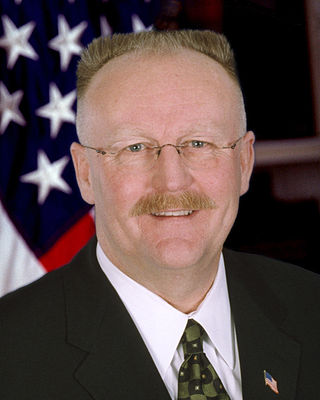The Carlyle Group is a multinational private equity, alternative asset management and financial services corporation based in the United States with $376 billion of assets under management. It specializes in private equity, real assets, and private credit. It is one of the largest mega-funds in the world. In 2015, Carlyle was the world's largest private equity firm by capital raised over the previous five years, according to the PEI 300 index. In the 2022 ranking however, it had slipped to sixth place.
Halliburton Company is an American multinational corporation responsible for most of the world's hydraulic fracturing operations. In 2009, it was the world's second largest oil field service company. It has operations in more than 70 countries. It owns hundreds of subsidiaries, affiliates, branches, brands, and divisions worldwide and employs approximately 55,000 people. The company has dual headquarters located in Houston and in Dubai, and remains incorporated in the United States.

KBR, Inc. is a U.S. based company operating in fields of science, technology and engineering. KBR works in various markets including aerospace, defense, industrial and intelligence. After Halliburton acquired Dresser Industries, KBR was created in 1998 when M.W. Kellogg merged with Halliburton's construction subsidiary, Brown & Root, to form Kellogg Brown & Root. In 2006, the company separated from Halliburton and completed an initial public offering on the New York Stock Exchange.

A war profiteer is any person or organization that derives unreasonable profit from warfare or by selling weapons and other goods to parties at war. The term typically carries strong negative connotations. General profiteering, making a profit criticized as excessive or unreasonable, also occurs in peacetime. An example of war profiteers were the "shoddy" millionaires who allegedly sold recycled wool and cardboard shoes to soldiers during the American Civil War. Some have argued that major modern defense conglomerates like Lockheed Martin, Boeing, BAE Systems, General Dynamics, and Raytheon fit the description in the post-9/11 era. This argument is based in the political influence of the defense industry, for example in 2010 the defense industry spent $144 million on lobbying and donated over $22.6 million to congressional candidates, as well as large profits for defense company shareholders in the post-9/11 period.
Dresser Industries was a multinational corporation headquartered in Dallas, Texas, United States, which provided a wide range of technology, products, and services used for developing energy and natural resources. In 1998, Dresser merged with its main rival Halliburton. Halliburton sold many of former Dresser non "oil patch" divisions, retaining the M W Kellogg Engineering and Construction Company and the Dresser oil-patch products and services that complemented Halliburton's energy and natural resource businesses. In 2001 Halliburton sold five separate, but somewhat related former Dresser non "oil patch" divisions, to an investment banking firm. Those five operations later took the name "Dresser Inc." In October 2010, Dresser Inc., was acquired by General Electric. It is headquartered in Addison, Texas.

In United States politics, the "iron triangle" comprises the policy-making relationship among the congressional committees, the bureaucracy, and interest groups, as described in 1981 by Gordon Adams. Earlier mentions of this ‘iron triangle’ concept are in a 1956 Congressional Quarterly Weekly Report as, “Iron triangle: Clout, background, and outlook” and “Chinks in the Iron Triangle?”

Fahrenheit 9/11 is a 2004 American documentary film directed, written by, and starring filmmaker, director, political commentator and activist Michael Moore. The subjects of the film are the presidency of George W. Bush, the Iraq War, and the media's coverage of the war. In the film, Moore claims that American corporate media were cheerleaders for the 2003 invasion of Iraq, and did not provide an accurate or objective analysis of the rationale for the war and the resulting casualties there.
Investment in post-2003 Iraq refers to international efforts to rebuild the infrastructure of Iraq since the Iraq War in 2003. Along with the economic reform of Iraq, international projects have been implemented to repair and upgrade Iraqi water and sewage treatment plants, electricity production, hospitals, schools, housing, and transportation systems. Much of the work has been funded by the Iraq Relief and Reconstruction Fund, and the Coalition Provisional Authority.

House of Bush, House of Saud: The Secret Relationship Between the World's Two Most Powerful Dynasties is a 2004 book by Craig Unger that explores the relationship between the Saudi Royal Family and the Bush extended political family. Unger asserts that the groundwork for today's terrorist movements and the modern wars that have sprung up about them was unintentionally laid more than 30 years ago with a series of business deals between the ruling Saudis and the powerful Bush family. The Saudis received investments and military protection in exchange for cooperation on lucrative oil deals. The author claims that the result has been a shady alliance between "the world's two most powerful dynasties." Unger writes, "Never before has an American president been so closely tied to a foreign power that harbors and supports our country's mortal enemies."

Bush's Brain: How Karl Rove Made George W. Bush Presidential is a book by James Moore and Wayne Slater that chronicles the political career of Karl Rove and the role he has played in the elections of George W. Bush, both when running for Governor of Texas and for president. It was published in 2003 by John Wiley & Sons, Inc. ISBN 0-471-47140-2.

Joe M. Allbaugh is an American political figure in the Republican Party. After spending most of his career in Oklahoma and Texas, Allbaugh came to national prominence working for Texas governor George W. Bush and helping manage his 2000 presidential election campaign. Allbaugh then became Bush's Director of the Federal Emergency Management Agency (FEMA) beginning in February 2001. He served until FEMA's transfer into the newly created Department of Homeland Security, after which he resigned in March 2003. He was appointed as the interim Director of the Oklahoma Department of Corrections by the state Board of Corrections, effective January 11, 2016. On July 6, 2016, the Oklahoma Board of Corrections voted unanimously to make his appointment permanent and set his salary at $185,000. Allbaugh has pointed out his department "is not a listing ship, it is a sinking ship."
Ralph Kimball is an author on the subject of data warehousing and business intelligence. He is one of the original architects of data warehousing and is known for long-term convictions that data warehouses must be designed to be understandable and fast. His bottom-up methodology, also known as dimensional modeling or the Kimball methodology, is one of the two main data warehousing methodologies alongside Bill Inmon.

Pratap Chatterjee is an Indian/Sri Lankan investigative journalist and progressive author. He is a British citizen and grew up in India, although he lived in California for many years. He serves as the executive director of CorpWatch, an Oakland-based corporate accountability organisation. He also works for the Bureau of Investigative Journalism in London. He writes regularly for The Guardian and serves on the board of Amnesty International USA and of the Corporate Europe Observatory
The Suite 8F Group, also referred to as the 8F Crowd, was a network of politically active businessmen in Texas from the 1930s into the 1960s. "Suite 8F" refers to Herman Brown's Suite at the Lamar Hotel (demolished) in Houston. Herman Brown, one of the co-founders of the construction firm Brown and Root, made his primary home in Austin until 1948. With the company headquarters in Houston, Brown typically traveled from Austin once per week, then stayed at his room at the Lamar for a few days. Yet other members of his family stayed there as well. In addition, Gus Wortham, another member of the group, lived in the room next door, 7F. Jesse H. Jones, the developer and owner of the Lamar Hotel, lived on its top floor and was also a member of the group.
Boots & Coots was a well control company. It was founded in 1978 by Asger "Boots" Hansen and Ed "Coots" Matthews, veterans of the Red Adair Service and Marine Company. The two companies extinguished approximately one third of the more than 700 oil well fires set in Kuwait by retreating Iraqi soldiers in the Gulf War. This work was featured in the 1992 film Lessons of Darkness.
Stephen L. Norris is one of the co-founders of The Carlyle Group, an American private equity firm and previously the Chairman of Gulf Capital Partners. He is a former member of the Federal Retirement Thrift Investment Board, who was appointed by President George H. W. Bush and confirmed by the United States Senate in 1990. In July 2014, it was announced he had joined the Florida-based company Global Digital Solutions.

Randal Keith Quarles is an American private equity investor and attorney who served as the first Vice Chair of the Federal Reserve for supervision from 2017 to 2021. He concurrently served as the chair of the Financial Stability Board from 2018 to 2021.

Houston Center is a retail and office complex in Downtown Houston, Texas, United States. It is owned by Brookfield Property Partners and Spear Street Capital, LLC, and operated separately by Jones Lang LaSalle (JLL) and Brookfield Property Management.

Private equity in the 2000s represents one of the major growth periods in the history of private equity and venture capital. Within the broader private equity industry, two distinct sub-industries, leveraged buyouts and venture capital expanded along parallel and interrelated tracks.

Herring are forage fish in the wild, mostly belonging to the family Clupeidae, but they are also an important food for humans. Herring often move in large schools around fishing banks and near the coast. The most abundant and commercially important species belong to the genus Clupea, found particularly in shallow, temperate waters of the North Pacific and North Atlantic Oceans, including the Baltic Sea, as well as off the west coast of South America. Three species of Clupea are recognized; the main taxon, the Atlantic herring, accounts for over half the world's commercial capture of herrings.











